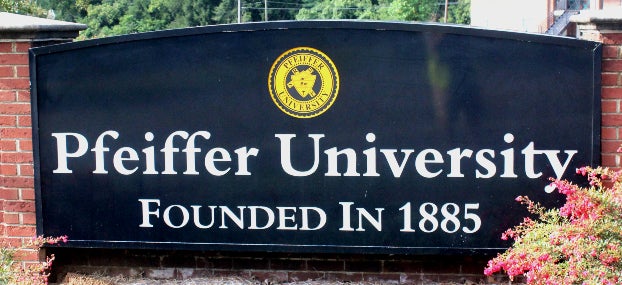Decorated coach celebrates his last season
Published 10:10 am Monday, December 16, 2024

- Misenheimer, North Carolina
|
Getting your Trinity Audio player ready...
|
By Ken Keuffel
for Pfeiffer University
Robbie Church ’81 certainly made his mark as a soccer player at Pfeiffer College, where he earned a B.A. degree in health and physical education.

Robbie Church
A star forward, he became the team’s leading scorer and MVP during his senior year. The NAIA, of which Pfeiffer was a part during Church’s time there, included him on its roster of All-South Region and All-Conference selections. In 1998, he was inducted into Pfeiffer’s Sports Hall of Fame.
Shortly after leaving Pfeiffer, Church failed to make the now-defunct Carolina Lightnin’ of the American Soccer League. He found himself at a crossroads.
“I didn’t see myself putting on a suit and working in an office all day,” he said. “There was an attractiveness to being outside around the game I loved. I thought, ‘Why don’t I give coaching a try?’ ”
Church, who grew up in Greensboro, would do just that. His remarkable career, which ended with his retirement this season, has included coaching stints at several colleges and universities over 43 years — most recently Duke University in Durham, where he began serving as the head coach of the women’s soccer team in 2001. His resume includes several honors, from his 2022 induction into the N.C. Soccer Hall of Fame to his being named the ACC Coach of the Year three times.
Church did exceptionally well at Duke. He led the Blue Devils to four NCAA College Cup appearances and three ACC regular season championships. And this season, he guided the women’s soccer program at Duke to its first No. 1 overall seed in the NCAA tournament.
Although his record at Duke includes more than 300 wins, these pale in comparison to the positive ways he has figured in the lives of his players, many of whom gathered to honor him during a special event at Duke in early October.
“For me, it’s about relationships with players and with my staff,” Church said. “At Duke, we get the best of the best. I mean, the kids are bright, they’re motivated, they want to do well in athletics, and they want to do well in the classroom. Our former players are making a big difference in the world. They’re big leaders in their fields.”
Church first began to think that coaching soccer might be for him when he took a course on it offered by the United States Soccer Federation. During the course, which introduced Church to key methodologies, he befriended Frank Kohlenstein, then the head coach of men’s soccer at the University of South Carolina, Upstate. Church would spend a year as one of Kohlenstein’s assistant coaches.
Church then paid his dues: East Carolina, where he was the head coach of the men’s soccer team from 1982 to 1983, paid him $1,500 a year. He flipped pizzas at a restaurant in Greenville to make ends meet.
In 1984, before becoming the head coach of men’s soccer at Belmont Abbey College (1985-1989), he worked as an unpaid assistant coach for the men’s soccer team at Duke. He survived on the money he made from working at Durham Sporting Goods.
Grit wasn’t the only quality that enabled Church to establish himself in coaching. An ability to adapt to the dynamics of different situations also played a big role — which mattered a great deal in the 1990s, when he began coaching women’s soccer teams, first at UNC Charlotte (1994-98) and then at Vanderbilt University (1999-2000).
While coaching at these schools, he absorbed some important insights. Church said that it’s counterproductive to treat female players “softly” just because they’re women.
“Women want to be coached,” he said. “They want to be coached up, they want to learn, they want to develop, they want to get themselves better, and they want to know how they can do that. I think it’s just the words you choose and how you want to deliver those words that makes a difference.”
As Church looks back on all that he’s accomplished, he views his time at Pfeiffer with gratitude, for lots of reasons. In addition to meeting his wife, the former Linda Atkins ’82, at Pfeiffer, he earned a degree that would help open doors, no matter what he chose to do after graduating.
And under the guidance of Coach Nick Lefko, he became even more enamored with a sport that would become his life’s calling.
“Pfeiffer really changed my life,” he said. “Before I enrolled there, I was kind of wandering around a little bit and trying to figure out what I was going to do. I’m so glad that it turned out to be coaching.”
Trending
This article was written for Pfeiffer University by Ken Keuffel.



